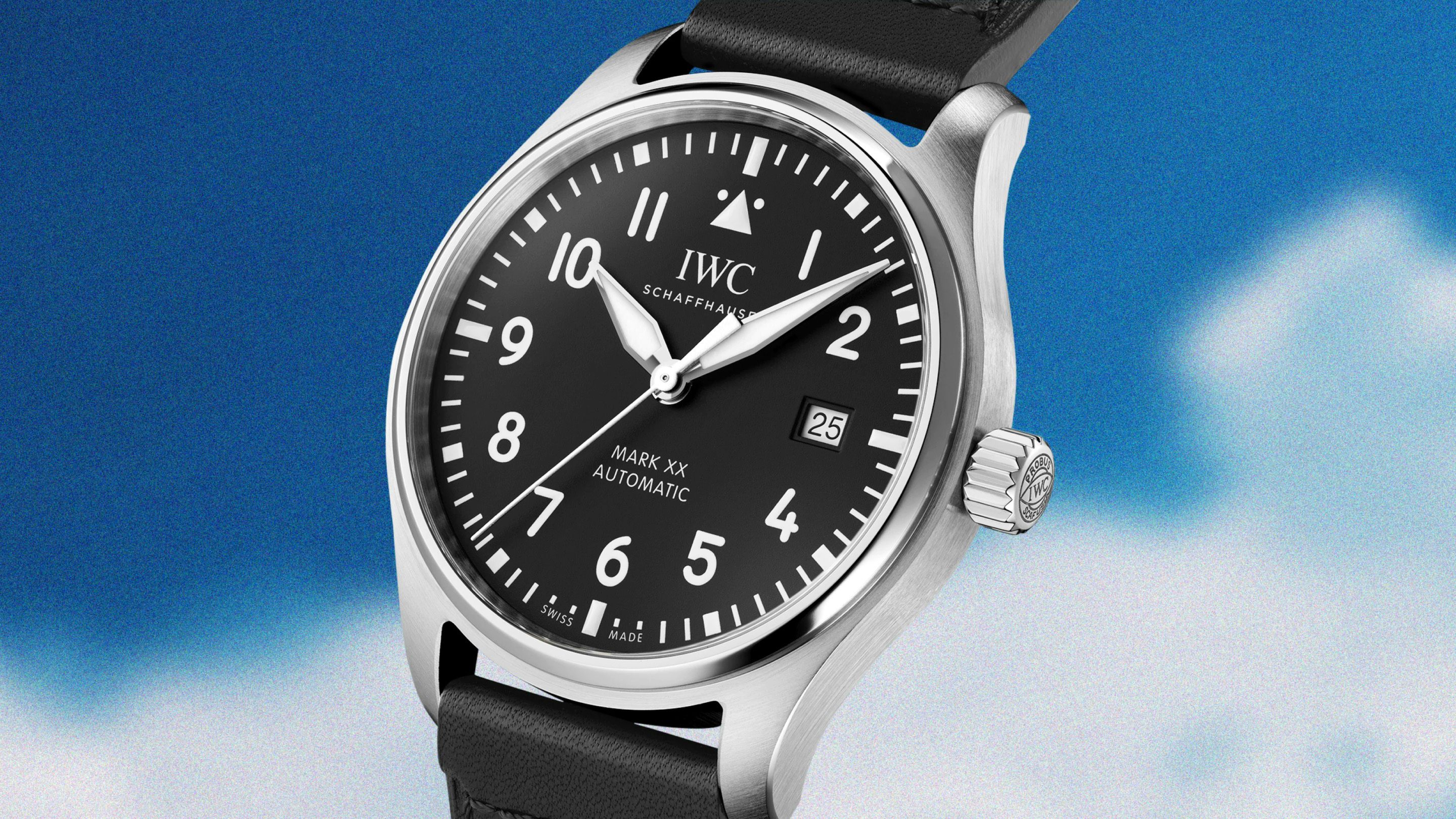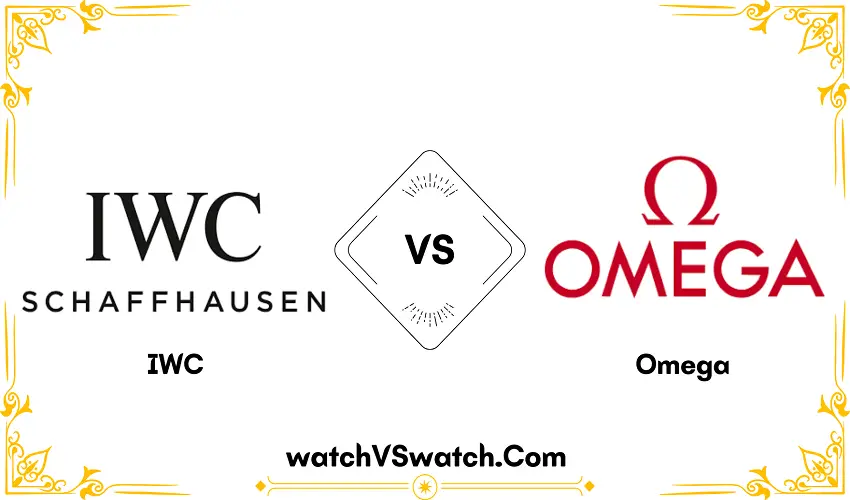In comparing IWC and Omega, IWC is known for its craftsmanship, while Omega is celebrated for its precision engineering. Both brands have distinct historical roots and offer a wide range of timepieces, catering to different tastes and preferences.
IWC, founded in 1868, boasts a rich history in designing luxury watches with a focus on intricate detailing and precise movements.
On the other hand, Omega, with its founding in 1848, has established itself as a pioneer in watchmaking technology, particularly renowned for its association with space exploration and robust sports watches.
Each brand has its unique strengths and a dedicated following, making it essential to evaluate your personal preferences and requirements before deciding between the two.
Comparing IWC And Omega
When it comes to luxury timepieces, two brands that often stand out are IWC and Omega. Each brand has its own unique history, legacy, and signature collections that appeal to enthusiasts and collectors.
Let’s take a closer look at the characteristics that set these two brands apart in the world of watchmaking.
Brand History And Legacy
The IWC (International Watch Company) has an illustrious history dating back to 1868, making it one of the oldest Swiss watch manufacturers. Known for its precision engineering and innovative designs, IWC has consistently produced exceptional timepieces that have earned the brand a reputation for excellence.
In contrast, Omega has a rich history that spans over 170 years. Founded in 1848, Omega has played an integral role in the evolution of watchmaking, particularly in the field of precision timekeeping and sports watches. The brand’s enduring legacy is marked by its association with notable events such as space exploration and the Olympic Games.
Signature Timepiece Collections
At IWC, the Portugieser collection stands as an iconic representation of the brand’s commitment to craftsmanship and elegance. Renowned for its distinctive design and horological excellence, the Portugieser collection showcases IWC’s dedication to creating timeless and sophisticated timepieces.
On the other hand, Omega’s Speedmaster collection has etched its place in history as the “Moonwatch” and has been a symbol of precision and adventure since its introduction in 1957. With its enduring legacy and connection to space exploration, the Speedmaster collection exemplifies Omega’s pioneering spirit and technological innovation.
Craftsmanship And Innovation
Material Selection And Quality
IWC and Omega both prioritize meticulous attention to detail in their material selection and rigorous quality standards.
Movement Technology
Both brands leverage cutting-edge movement technology to ensure precision and reliability in their timepieces.
Design And Aesthetics
The design and aesthetics of a timepiece are key factors in determining its appeal and desirability. In the case of luxury watches, both IWC and Omega are renowned for their attention to detail and stylish designs. In this section, we will explore the case and dial design as well as the strap and bracelet options offered by these iconic watch brands.
Case And Dial Design
When it comes to case and dial design, both IWC and Omega showcase exquisite craftsmanship and distinctive styles.
IWC is known for its elegant and timeless designs. The brand offers a range of case shapes, including round, rectangular, and tonneau, each with its unique charm.
The cases are crafted from high-quality materials such as stainless steel, titanium, and precious metals like rose gold and platinum. The dials of IWC watches are meticulously designed, featuring minimalist aesthetics, clear markers, and easy-to-read hands.
On the other hand, Omega watches are renowned for their sporty yet sophisticated appeal. The brand offers a wide variety of case designs, including the iconic Speedmaster with its iconic round shape and the Seamaster with its distinctive wave-patterned dial.
The cases are crafted with precision and are available in materials like stainless steel, ceramic, and titanium. The dials of Omega watches are often characterized by their boldness, featuring intricate details, luminescent markers, and unique color combinations.
Strap And Bracelet Options
When it comes to strap and bracelet options, both IWC and Omega offer a range of choices to suit different preferences and occasions.
IWC provides a variety of strap options, including leather, rubber, and metal bracelets. The leather straps are crafted from high-quality materials, offering comfort and elegance, while the rubber straps provide a more casual and sporty look. For those who prefer metal bracelets, IWC offers robust and stylish options in stainless steel and precious metals.
Similarly, Omega offers a diverse range of strap and bracelet options. The brand’s leather straps are known for their exceptional quality and craftsmanship, enhancing the overall appeal of the timepiece.
Omega also offers durable rubber straps, perfect for water activities or casual wear. Moreover, for those seeking a classic and timeless look, Omega provides a variety of metal bracelets, including stainless steel and gold, ensuring versatility and sophistication.
In conclusion, both IWC and Omega excel in terms of design and aesthetics. Their commitment to creating stunning timepieces is evident in the attention to detail exhibited in the case and dial design, as well as the variety of strap and bracelet options available.
Whether you prefer the timeless elegance of IWC or the sporty sophistication of Omega, both brands offer exceptional choices that cater to diverse styles and preferences.
Price And Value Proposition
When comparing luxury watch brands, two names that often come up are IWC and Omega. Both brands have a long-standing reputation for quality and craftsmanship, but how do they stack up in terms of price and value? Let’s delve into a closer examination.
Comparison Of Pricing Tiers
One of the first things to consider is the price range of watches offered by IWC and Omega. Each brand offers a range of models at different price points, catering to various budgets and preferences.
To begin with, IWC typically falls into the higher price bracket, known for its commitment to precision and timeless design. Their watches are often associated with sophistication and are favored by those seeking exclusivity. However, this luxury comes at a higher cost.
On the other hand, Omega offers a wider range of price tiers to cater to a broader audience. While they also have high-end models coveted by collectors and enthusiasts, they also have more affordable options.
Omega strikes a balance between luxury and accessibility, appealing to both the discerning connoisseur and the aspirational watch enthusiast.
Value-added Features
When it comes to value proposition, both IWC and Omega have their advantages. Let’s explore some of the value-added features that set these brands apart.
Starting with IWC, their watches often feature intricate complications, such as perpetual calendars and chronographs. These additional functions not only enhance the timekeeping experience but also add a touch of sophistication to the overall design.
Omega, on the other hand, is known for its close association with the world of sports and exploration, having served as the official timekeeping partner for the Olympic Games and even being the preferred choice for NASA astronauts.
This rich heritage and pioneering spirit contribute to the brand’s overall value proposition.
| IWC | Omega |
|---|---|
| Luxury and exclusivity | Luxury with accessibility |
| Intricate complications | Associated with sports and exploration |
- IWC specializes in precision
- Omega offers a wider range of price points
- IWC showcases intricate complications
- Omega has a rich heritage in sports and exploration
In conclusion, when it comes to price and value proposition, both IWC and Omega offer their unique strengths. IWC embodies luxury and exclusivity, while Omega strikes a balance between luxury and accessibility.
Whether you value complications or a rich heritage, both brands have something to offer to watch enthusiasts seeking the perfect timepiece.
Which Luxury Timepiece Reigns Supreme?
Weighing Heritage And Prestige
When evaluating IWC vs. Omega, consider the significance of heritage and prestige. IWC boasts a rich history dating back to 1868, while Omega is renowned for its association with NASA and the Olympics.
Personal Style And Preference
Personal style and preference play a crucial role in choosing between IWC and Omega. IWC offers a timeless elegance, while Omega appeals to those with a sportier taste.

Frequently Asked Questions For Iwc Vs Omega
Which Brand Is Better, Iwc Or Omega?
Both IWC and Omega are renowned luxury watch brands, but the “better” brand depends on personal preference. IWC is known for its craftsmanship and precision, while Omega is recognized for its historical significance and association with the Olympics. It’s advisable to try on watches from both brands to see which style and features suit you best.
What Is The Price Range Of Iwc Watches?
IWC watches are available in a wide price range, starting from around $4,000 up to over $100,000 for their high-end models. The price varies depending on factors such as the watch’s complications, materials used, and limited edition status. It’s recommended to establish a budget before shopping for an IWC watch.
Are Omega Watches More Accurate Than Iwc?
Both IWC and Omega are known for their accuracy, but Omega has the edge when it comes to precision. Omega watches are tested and certified by COSC for their chronometric performance, ensuring accurate timekeeping. IWC watches, while also reliable, place more emphasis on craftsmanship and design.
Which Brand Holds Its Value Better, Iwc Or Omega?
Both IWC and Omega are luxury watch brands that generally hold their value well. However, historically, Omega watches have had better resale value due to their iconic status and demand among collectors. IWC watches, particularly limited edition models or those with unique complications, can also retain their value over time.
Conclusion
Both IWC and Omega watches offer exceptional quality and style for watch enthusiasts. The decision between them boils down to personal preference and budget.
Ultimately, choosing the one that resonates with you is what matters most in finding the perfect timepiece for your collection.

